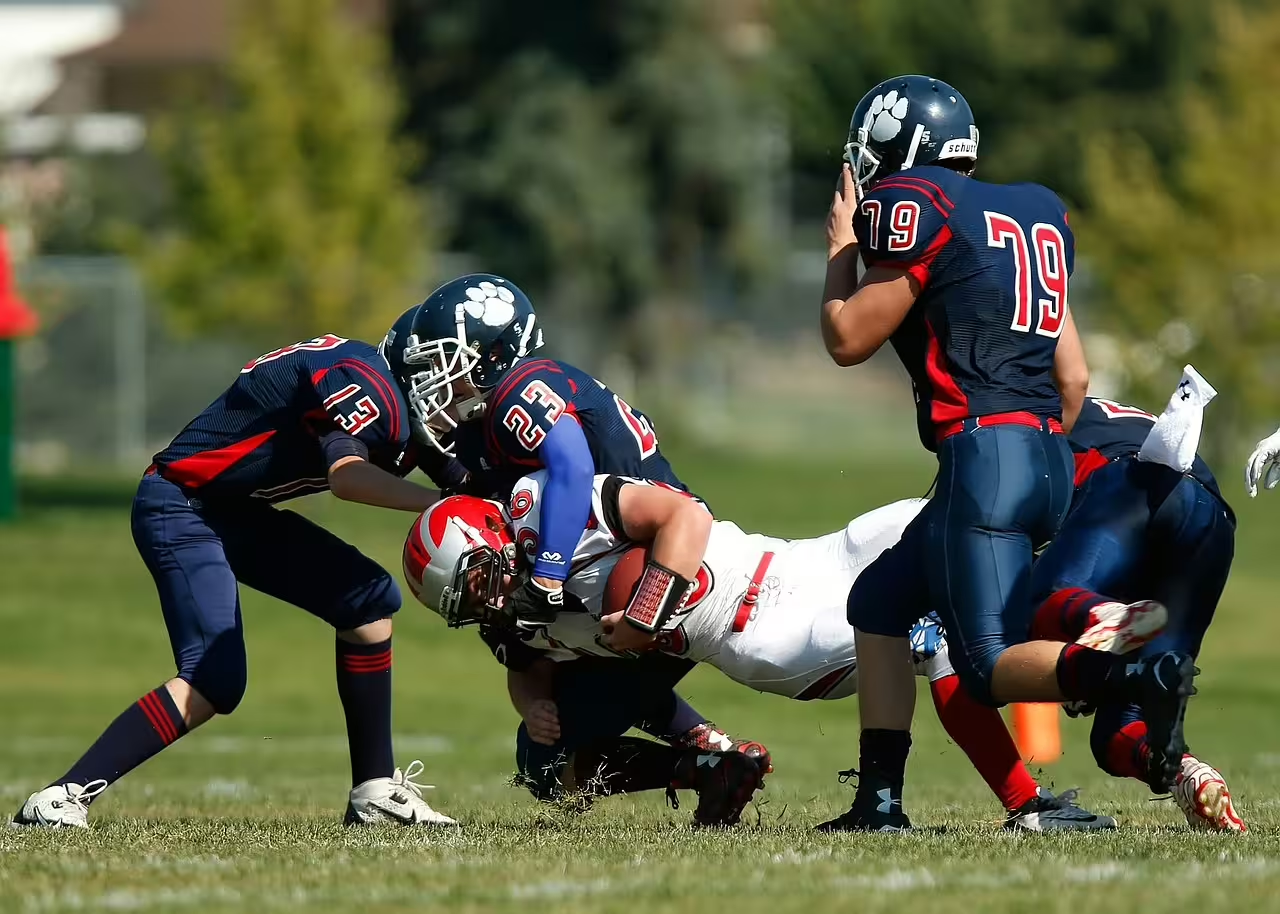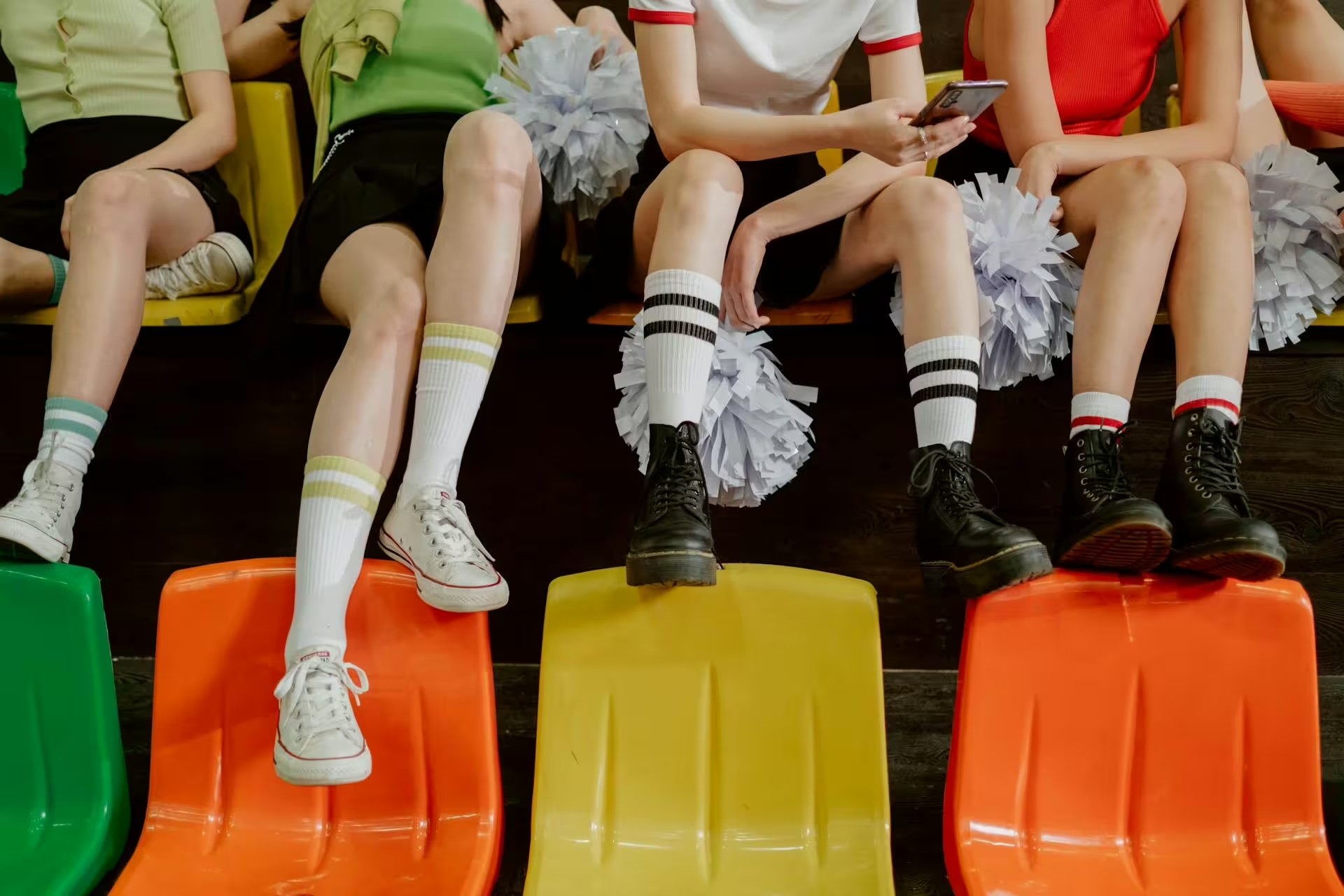Sports are an incredible way for kids to stay active, make friends, and have fun, but many parents aren’t aware that playing sports can also help their child to become a better leader? Whether it’s on the basketball court, soccer field, or baseball diamond, sports teach kids valuable lessons that they can take with them as they grow. One of those lessons involves leadership and can help them age up into that help strong, confident leaders. In this guide, we’ll explore how playing sports can help your children build leadership skills and how you can help them to develop those skills, all while still having fun.
What is Leadership?
First and foremost, we need to ask ourselves what being a leader really means. We cannot talk about sports leadership at all before we define leadership in general. A leader is someone who can guide, motivate, and inspire others to work together toward a common goal; which seems like a very important thing in sports, especially team sports. The best leaders tend to be responsible, they are good communicators, and are capable of making decisions that help their team succeed.
Despite what SOME people think, however, leadership is not about being the loudest or the bossiest person in the room. True leadership is about setting a good example, being kind, and helping everyone on your team work together the best way they can. Capable leaders lift others up, show empathy, and help their team achieve more than they ever could on their own.
How Sports Teach Leadership
Sports provide young people with an excellent platform for developing leadership skills. This is because sports almost always involve teamwork, open communication, problem-solving skills, and perseverance. Whether it’s in a game or at practice, kids face challenges that push them to take responsibility, support their teammates, and make quick, often last-minute, decisions. Here are some ways that sports help children to become great leaders:
A. Teamwork and Collaboration
One of the most important aspects of leadership is the ability to work well with other people. In team sports, success is rarely about the skills and ability of one person—it’s about the entire team working together. Whether they are passing the ball in soccer, setting up a spike in volleyball, or coordinating a daring play in football, teamwork is going to be key.
- Supporting your teammates: Good leaders know how to support their teammates. This means supporting them on and off the field. In sports, this could mean cheering them on during a play, offering encouragement after a mistake, or stepping up when someone else looks like they are struggling.
- Learning to cooperate: Playing a team sport teaches children how to cooperate with people of different skill levels, personalities, and backgrounds. The best leaders in sports are adept at bringing people together and finding ways for everyone to contribute to the overall goal.
B. Communication Skills
Effective leaders also happen to be excellent communicators. Whether it’s giving clear instructions, listening to others when they speak, or offering valuable advice, communication is essential in team sports.
- Talking on the field: In many sports, constant communication is necessary for success. Point guards in basketball need to direct their teammates to get the ball in the hoop, while soccer players must call out passes. Even football quarterbacks need to communicate plays to the entire team, either before or after the snap.
- Listening to others: Leadership isn’t just about giving orders, however, it’s also about listening to your teammates. Leadership is about understanding the perspectives of everyone on the team, and good leaders are willing to take in and analyze feedback. They are good at listening to concerns, and using what they hear to make the best decision for the whole team.
- Resolving conflicts: When teammates disagree, good leaders use their communication skills to resolve conflicts, calm emotions, and keep the team focused on the game.
C. Decision-Making
In sports, situations can change rather quickly. This means that team leaders often have to make decisions in the heat of the moment. Whether it’s deciding to take a shot, pass the ball, or change a play, athletes must be able to think on their feet.
- Handling pressure: Leaders are often looked to for guidance when the game is on the line, and that can be very stressful. In high-pressure situations, being able to make the right decision can be the difference between winning and losing.
- Taking responsibility: Leadership also means taking responsibility for one’s choices. If a play doesn’t go as planned or a decision leads to a mistake, leaders should own up to it and work to make things right. Accountability is a key aspect of superb leadership.
D. Setting an Example
It might sound a bit redundant, but leaders are supposed to lead by example. This means showing their teammates how to act both on and off the field. In sports, this could mean giving 100% effort at every practice, at the very least. But this also includes showing respect to opponents and keeping a positive attitude even when things don’t go your way.
- Work ethic: Good leaders should be ready to show their teammates the importance of hard work. This means always giving their best effort and inspiring others to do the same. A good leader’s work ethic can set the tone for all their teammates.
- Good sportsmanship: Leaders also demonstrate respect, fairness, and kindness to their teammates. They do the same for their coaches and their opponents as well. Whether a leader wins or loses, showing good sportsmanship is an important way to show that they are meant to be in that role.
- Staying positive: Leaders also know how to keep a positive attitude, even when things get tough. If the team is losing or struggling, a good leader should be able to boost morale and keep everyone motivated to keep going.
E. Problem-Solving
Quick on your feet also means quick-thinking. Leadership is very much about problem-solving. In sports, those problems might come in the form of a tough opponent, a tricky play, or a teammate who’s having a hard time. The best leaders use creativity and critical thinking to find solutions to any and all of these challenges.
- Thinking strategically: In many sports, leaders need to think ahead and develop strategies that will give their team the best chance of success. This might mean coming up with new plays or adjusting tactics based on the other team’s strengths and weaknesses. Sometimes, it might even involve changing the game plan when things aren’t working.
- Adapting to change: Things don’t always go as planned in sports. Leaders learn how to adapt to changing circumstances and find new ways to succeed when things are going awry. This flexibility is a key skill in both sports and in leadership, in general.
Leadership Roles in Sports
Sports offer many opportunities for children of all ages to step into leadership roles. These roles help kids practice leadership skills in an enjoyable and generally supportive environment.
A. Team Captain
The role of team captain is probably the obvious leadership roles in sports. Captains are responsible for motivating their teammates, communicating with the coach, and are often tasked with making important decisions on the field. Most importantly, captains are expected to set a good example by encouraging their teammates.
B. Mentoring Younger Teammates
As stated earlier, leadership doesn’t always mean being the loudest player. It also doesn’t mean that you are the most skilled player. Indeed, sometimes leadership is about helping others improve. In many sports, older or more experienced players can take on the role of mentor, helping younger or less experienced teammates learn the ropes.
C. Leading by Example
Very often, the best leaders on a team are those who lead by example, not just those with the title of leader, captain, coach, or mentor. These leaders show others how to behave, work hard, and stay positive simply by setting a good example for their teammates. These leaders give 100% at all times, they work hard, and inspire others. Good leaders show respect for coaches, players, and referees, staying calm during disagreements and following the rules.
Building Leadership Skills Through Sports
So, we know that sports can help your child become a leader, but how can you actively work on helping them become a better leader while they are playing sports. These tips will help your child grow as a leader on the field:
A. Practice Self-Discipline
All leadership starts with self-discipline. This means showing up to practice on time, working hard on and off the field, and staying focused on improving necessary skills. The best leaders do this because they are looking to be great and help others be great, not because they know someone is watching. Good leaders should set personal goals for developing skills, and parents can help to manage those goals; without setting unrealistic expectations. Most importantly, good leaders should remain focused on the game or task at hand, which will inspire others to do the same.
B. Be a Good Listener
One of the most important traits of a leader is the ability to listen to others. We always want our kids to listen to authority (it makes all our jobs easier) but great leaders take the time to understand what their teammates and coaches are saying. They then use this information to make better decisions. Listening to one’s coach is paramount, it shows respect and deference. Your child should also learn to listen to their teammates, to care about how they are feeling and help them solve problems.
C. Develop Confidence
The most brilliant leaders ooze confidence, which is already an important emotion that all parents wish to instill in their children. This doesn’t mean that they aren’t allowed to be nervous or even make mistakes, it just means that should believe in themselves no matter what comes. As your child improves with practices, confidence will follow. That confidence will in turn inspire others. You can help by celebrating even small victories, which can bump up that self-confidence even a little bit more.
D. Encourage and Motivate Others
Being a good leader means inspiring others to succeed and helping them get there. Teaching your kids to encourage their teammates even when they make a mistake and celebrating their successes can help them stay positive and perform better over time. them when they make mistakes, and celebrating their successes. Lifting others up is paramount.
E. Learn from Mistakes
It’s important that young leaders understand that nobody’s perfect, and even the best leaders will make mistakes now and then. How those kids respond when things go wrong is very important, especially when other kids are watching. Despite challenges or setbacks, the best leaders can take responsibility for their actions and learn from their failures. Doing so makes them even more respectable in the eyes of their peers.
The Role of Coaches in Developing Leadership
Coaches are an important role of developing team leaders in sports. They don’t just teach valuable skills for the sport they are coaching, they set an example of leadership, guidance, and encouragement. This can help young athletes grow both on and off the field.
- Encouraging responsibility: Coaches will often give kids more responsibility by letting them lead warm-ups, demonstrate drills, or help organize team activities. These little tastes of leadership often give children a chance to practice being leaders in a supportive environment.
- Fostering teamwork: Team sports always emphasize the importance of teamwork, communication, and collaboration; and coaches facilitate all three. By encouraging kids to work together and support each other, coaches help develop the leadership skills that children will need as they grow and improve.
Benefits of Leadership Skills in Other Areas of Life
The leadership skills your kids develop through sports won’t just help them on the field—they will also benefit them throughout their lifetimes. Here’s how these skills can make a difference:
- In school: Leadership skills like responsibility, communication, and teamwork can help children succeed in the classroom as well. They can take point on group projects or participate in extracurricular activities like student government. The point being, being a leader helps kids excel academically.
- In friendships: Leadership skills also help kids build stronger, more supportive friendships with their peers. They learn to listen better, communicate better, and support other children.
- In future careers: Leadership skills developed on the sports field can absolutely benefit kids in their future careers. Employers often value leaders who can work well with others, posses problem-solving ability, and have a positive attitude even when facing challenging situations.
Cultured Athlete Says…
Sports are more than just a fun way to stay active—they’re also a powerful tool for developing leadership skills that might last a lifetime. Learning to work with others, communicate effectively, or handle challenges with confidence will take a kid through their sports career and help them grow into truly inspiring leaders.
Discover more from CulturedAthlete
Subscribe to get the latest posts sent to your email.






